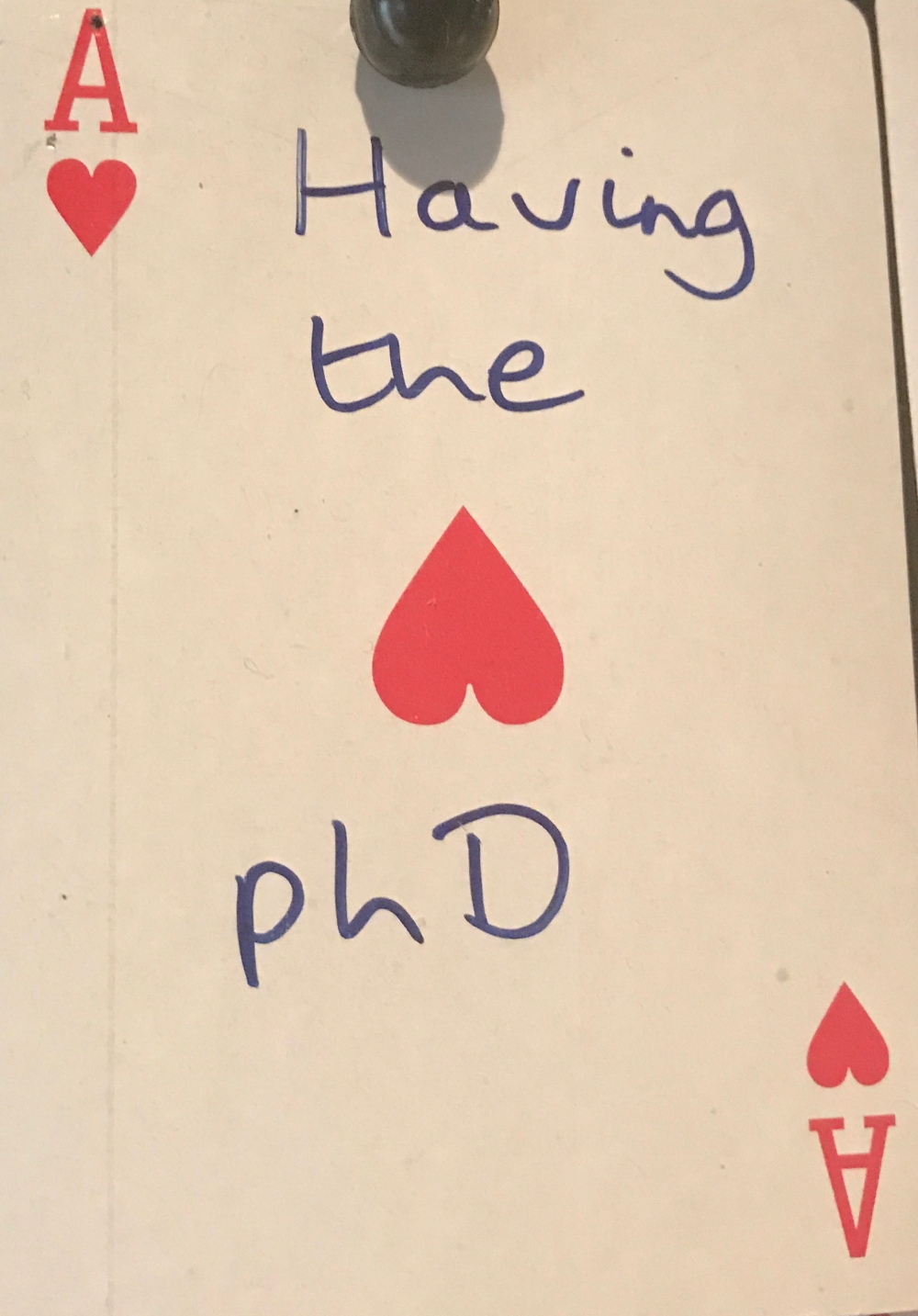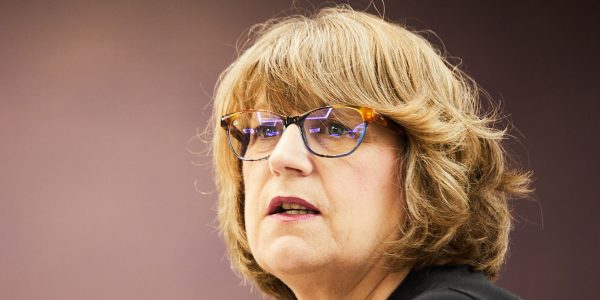
Life is what happens when you’re completing a PhD (to appropriate a more famous expression).
My proposal to undertake a PhD investigating Career Strategies in Public Relations at Bournemouth University was accepted in October 2009 – this week I was delighted to be told during my Viva (oral examination) that I would be awarded my doctorate (subject to minor amends).
A lot of life has happened in the past seven years and eight months. There have been the matches, hatches and dispatches by which the news of life can be reported. People have entered, stuck around or departed through the routine of my working life.
Friends and memories have been made. Dogs have found their forever homes, grown up, grown old and some have passed on. A French house was sold and a British bungalow was bought – with a mother relocated.
Many long journeys were driven in a car full of books as my studies were forever portable. Piles of books and papers, USB sticks full of downloads and drafts, note books of reflections, printouts and interview recordings – spread throughout the house spinning out of control like spiders’ webs.
The valley of despair that I warn students about, has been my intellectual home for several periods, until I’ve climbed back up the slope of hope, often with the support of others. The life of a PhD is a solo venture but it isn’t undertaken alone.
Friends, family, colleagues, wonderful supervisors and research participants each play a part. Then there’s the work of so many writers who have shared their research, thoughts and theories in the multi-layered texts that enable any of us to build our work on solid foundations.
This knowledge base has not been a static, dusty archive waiting to be unpicked by me. It is a living construction that has developed alongside my own work. The fields of public relations and career studies are dynamic where the past, the present and the future are continuously knotted and entwined.
Academic research involves looking back, looking around, looking forward and looking inside yourself. What we think we know has to be deconstructed and reconstructed. New work sometimes offers new vistas to be explored, sometimes it reveals dead end thinking to be challenged. From a panoramic viewpoint, your own work needs the space to breathe and move forwards, as you look to open up something new, make an original contribution, to offer up yourself and your words.
A PhD also means learning about you – your strengths and your weaknesses. For me, the experience has provided realisation of personal resilience alongside recognition of reasons why for many, many moments I could have given up. Although perhaps it is the comfort of knowing I could stop, that kept me going.
More hours than I could calculate have been spent reading and writing, working through my thinking and working out what I want to say. Why am I doing this? Hoping that I have constructed something worth saying, worth reading, worth others thinking about. Something that will make a contribution. Be good enough, better than I fear. Be bold enough to challenge the theories and practices that I critique. Be interesting, innovative, inspirational, informed, intriguing.
And it is. I think, I hope, I believe, I know.
There is much more to say on the process of completing a PhD, the content of my PhD, and the many individuals without whom I could not have given life to the thesis.
But that’s for another day*. For now is a time to reflect on life passed and life to come. To mark this kairotic moment.
PhD – doctor of philosophy: a prestigious qualification that demonstrates talent, academic excellence and a thirst for knowledge.
A friend told me that the first woman to obtain a PhD degree was Elena Cornaro Piscopia; conferred on her at the University of Padua on June 25, 1678. Confirmation of my doctorate came 340 years and two days later.
Like any qualification worth having, a PhD is earned through hard work and intellectual endeavour. The Viva stipulation of a few amends to complete is a chance to relive the life that went into every word. It offers an opportunity for kaizen (continuous improvement) before freedom from the PhD life, to a new place where ideas can grow freely. Where my work can stretch its wings, like a wild bird of prey – a kite – flying the nest.
Apparently the first doctorate degree was awarded in medieval Paris in the mid-12th century, and became an official licence to teach. A time of of falconry and swordsmanship.
I love the idea that in Finland, a doctoral sword is part of the PhD conferment ceremony. I think this is a fabulous way to recognise this ancient, yet still relevant achievement.
Now that I have more spare time, I’m attracted by the seven day sword making course offered by Owen Bush at his School of Blacksmithing and Bladesmithing in Kent. Or maybe I treat myself to a fabulous master-crafted example. I don’t suppose I’ll be able to wear it to my graduation ceremony though.
* I am participating in a panel discussion on Employability and Sustainable Careers at the inaugural #MindthePRGap event at Birmingham City University on 12 July – see: https://www.eventbrite.co.uk/e/mind-the-pr-gap-2017-bringing-together-research-and-practice-tickets-31931103791 to book.
The image for this post is a playing card from a hypnotherapy session that helped me to get out of a valley of despair period. It indicates my key goal and has been pinned to a board that I have looked at every day for several years. At graduation, I will put a bright green tick on it. To mark the sense of achievement.

Amazing story of achievement Heather. Really delighted for you.
Wonder what your next playing card is going to say?
Congratulations, Heather! It’s an ending but also a beginning, and I hope you enjoy both.